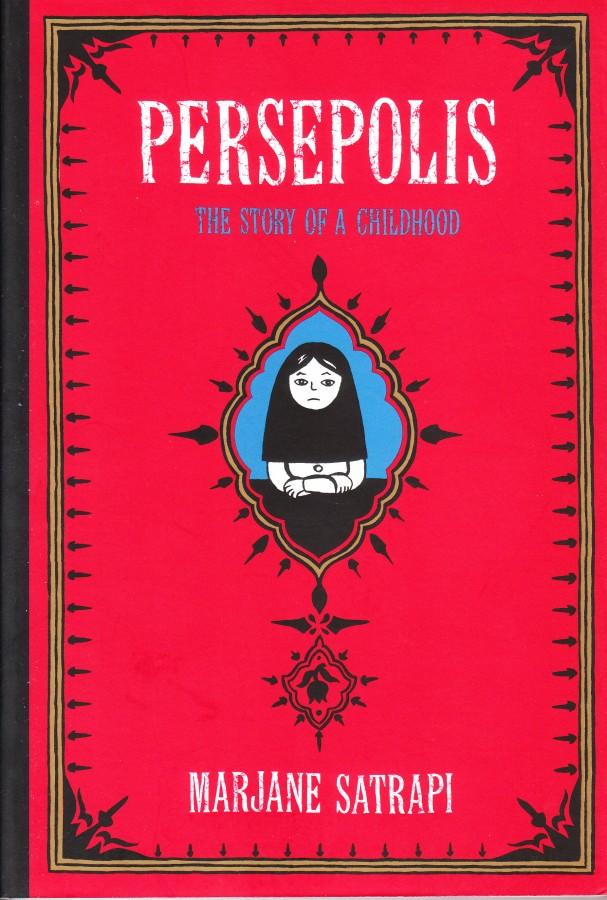Graphic Novel Banned for Graphic Images
April 12, 2013
Chicago’s Public School system has displayed everything but what it is to be an educator. In an effort to shield the venerable eyes of seventh-graders across the city, the collective academic fat cats have pulled Marjane Satrapi’s graphic novel, Persepolis, from the district’s curriculum due to “graphic images and language.” The autobiographic account of Satrapi’s Iranian heritage features images of torture, a concept that is no doubt entirely unfathomable to the 12-year-old minds of our Windy City. CPS chief Barbara Byrd-Bennett wanted the novel expelled from schools entirely, but settled for a curriculum ban once informed of the unpopularity often associated with tyrannical censorship. Ignoring the irony of banning a graphic novel for containing graphic images, Persepolis is certainly not the first book to undergo scrutiny.
Salman Rushdie’s The Satanic Verses were stripped from shelves for “blasphemy.” Of Mice and Men, by Nobel Prize winner John Steinbeck, was deemed “indecent.” J.D. Salinger’s Catcher in the Rye is reduced to “a filthy, filthy book.” All literary giants have been banned at one point because they accomplished the most profound success one can obtain through words, worth more than any Nobel or Pulitzer. Writing something that stirs your soul, that moves your heart or changes your thoughts or sings to you through language, these are the most prolific books. Franz Kafka said, “…we ought to read only the kind of books that wound or stab us. If the book we’re reading doesn’t wake us up with a blow to the head, what are we reading it for?”
This story instigates a literary vehemence that is a rarity in our “evolved” tech-savvy world because no one seems to care, let alone recognize the significance books have anymore. Nobody, of any status, has the right to tell another person what their mind should and should not do. There are endless possibilities when you read, endless trips you can take and you bring back so much more than a shot glass with the name of the resort on it. You can feel the heat from the charging bulls of Pamplona in Hemingway’s The Sun Also Rises. Fitzgerald makes it possible to witness longing in Gatsby’s heart as he stares at a green light on a distant dock. Charles Baudelaire sings only the songs a poet can hear and epitomizes the beauty of language in his Flowers of Evil.
We should never selectively choose what young people are capable of understanding. On the contrary, teachers should strive to teach anything and everything that stimulates the mind and let these students determine what stays and what goes. By holding nothing back, we are teaching the supposed “future” a very important lesson: There is a lot in this world that is unworthy of taking notice. What students must learn is the filtering process of sorting through quantity to extract quality, an art in desperate need of revival thanks to the Internet. The ability to screen out the noise of the extraneous and focus on what truly matters is an invaluable trait that extends far beyond the classroom. Changing student’s curriculum to “protect impressionable minds” is an excuse for being a lazy teacher. Instead, why not explain the images of torture in Persepolis and the historical relevancy or moral implications? It is a much harder task to accomplish, but it will certainly yield greater minds.
The underlying commonality in the reasons behind each banished book is fear. For the same reasons plantation owners of the south made it illegal to teach slaves to read, books are banned strictly out of panic that the oppressed will realize their oppression and revolt. Reading is the revolution for thought and the two have a direct relationship. The more reading you do, the larger the repertoire you have for these ideas and the more weapons you will have against these previously imbedded doctrines. Cerebral battles such as these results in questions, and people in charge of other people are very, very scared of those who question. Censorship is the highest reassurance a writer can experience; the one true way to know you left your mark on the world through literature. To cause enough revolution in minds to scare those in power is the watermark of profound literature and the reason I will always choose to read a book that was banned over one that was not.








